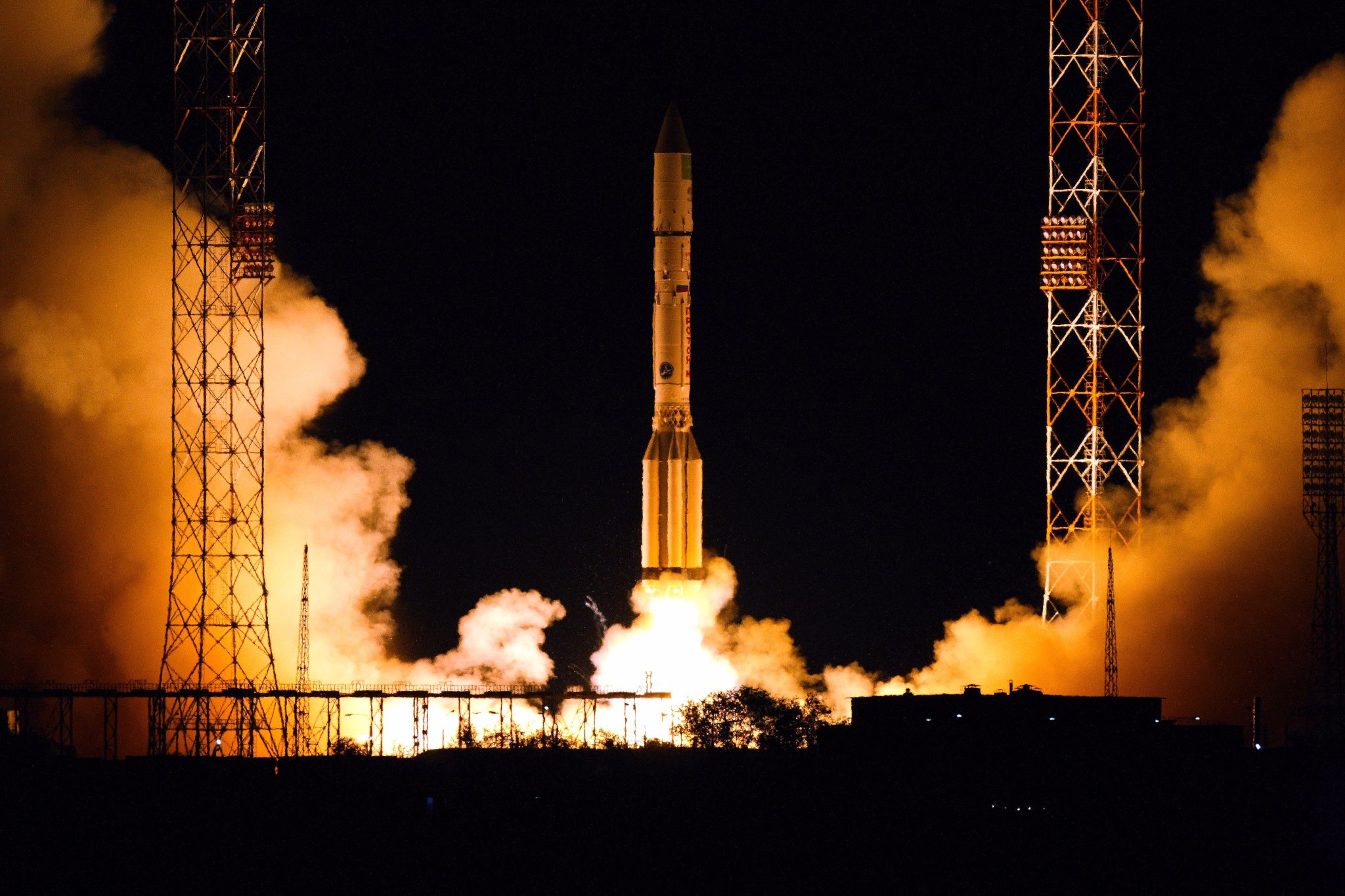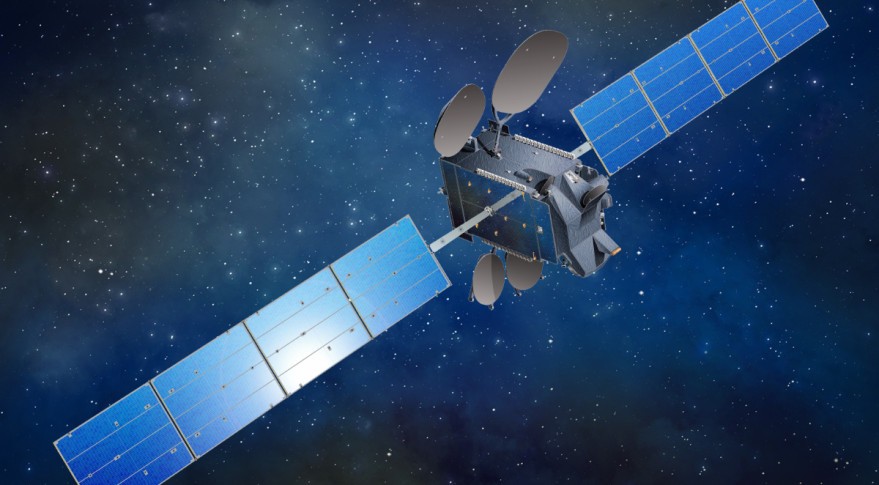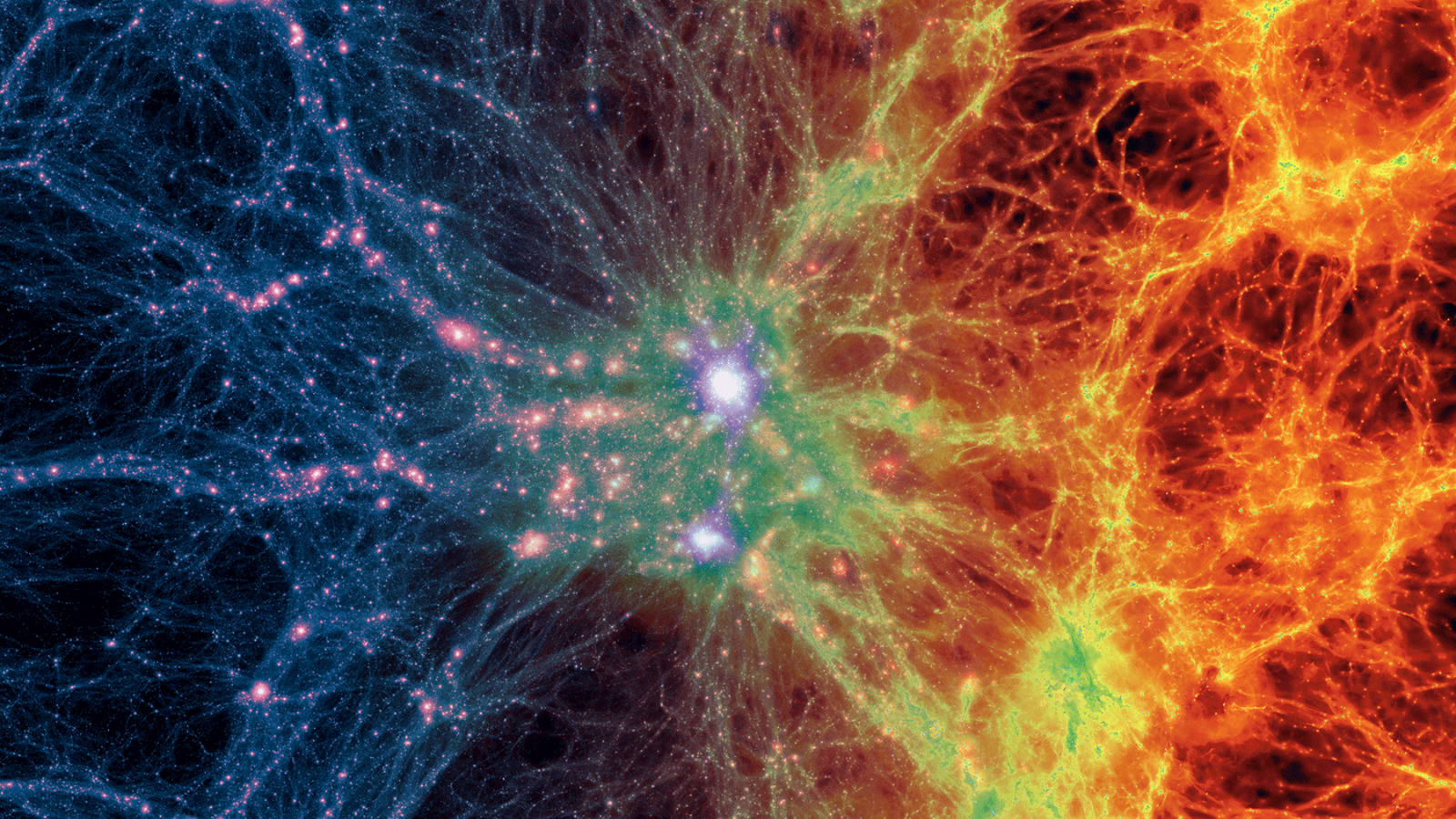ILS Proton Rocket Launches Hispasat Satellite
PARIS — International Launch Services last night (Sept. 11) conducted the second of three commercial Proton launches planned for this year, completing a nine hour and 12-minute mission carrying Hispasat's Amazonas-5 satellite.
Proton lifted off from the Baikonur Cosmodrome at 3:23 p.m. EDT (1923 GMT), using its first three stages to reach a suborbital trajectory, followed by five burns of the Breeze M upper stage to reach geostationary transfer orbit.
The launch is Proton's third overall this year, preceded by an ILS launch of EchoStar-21 in June and a Russian government launch of the Blagovest-11L satellite in August.

Built by Space Systems Loral in California, Amazonas-5 has 24 Ku-band transponders and a high-throughput payload of 34 Ka-band spot beams. Spain-based Hispasat ordered the satellite in 2014 after a power problem on the Orbital ATK-built Amazonas-4A reduced its capacity.
The problem prompted Hispasat to cancel its order for an Amazonas-4B satellite and turn to SSL to build Amazonas-5 as a single-satellite solution.

Amazonas-5 will be stationed at 61 degrees west for television and internet services across South and Central America.
ILS's final mission for the year is scheduled for Sept. 28 with AsiaSat-9 for Hong Kong-based fleet operator AsiaSat.
Breaking space news, the latest updates on rocket launches, skywatching events and more!
This story was provided by SpaceNews, dedicated to covering all aspects of the space industry.
Join our Space Forums to keep talking space on the latest missions, night sky and more! And if you have a news tip, correction or comment, let us know at: community@space.com.
Caleb Henry is a senior analyst for Quilty Analytics and a former staff writer for the space industry publication SpaceNews. From 2016 to 2020, Caleb covered the global satellite industry for SpaceNews, chronicling everything from launches, spacecraft manufacturing and ground infrastructure. Caleb's work has also appeared in NewSpace Global and Access Intelligence. He earned a bachelor's degree in political science with a minor in astronomy from Grove City College.

